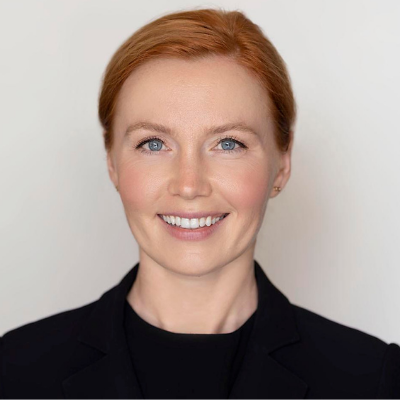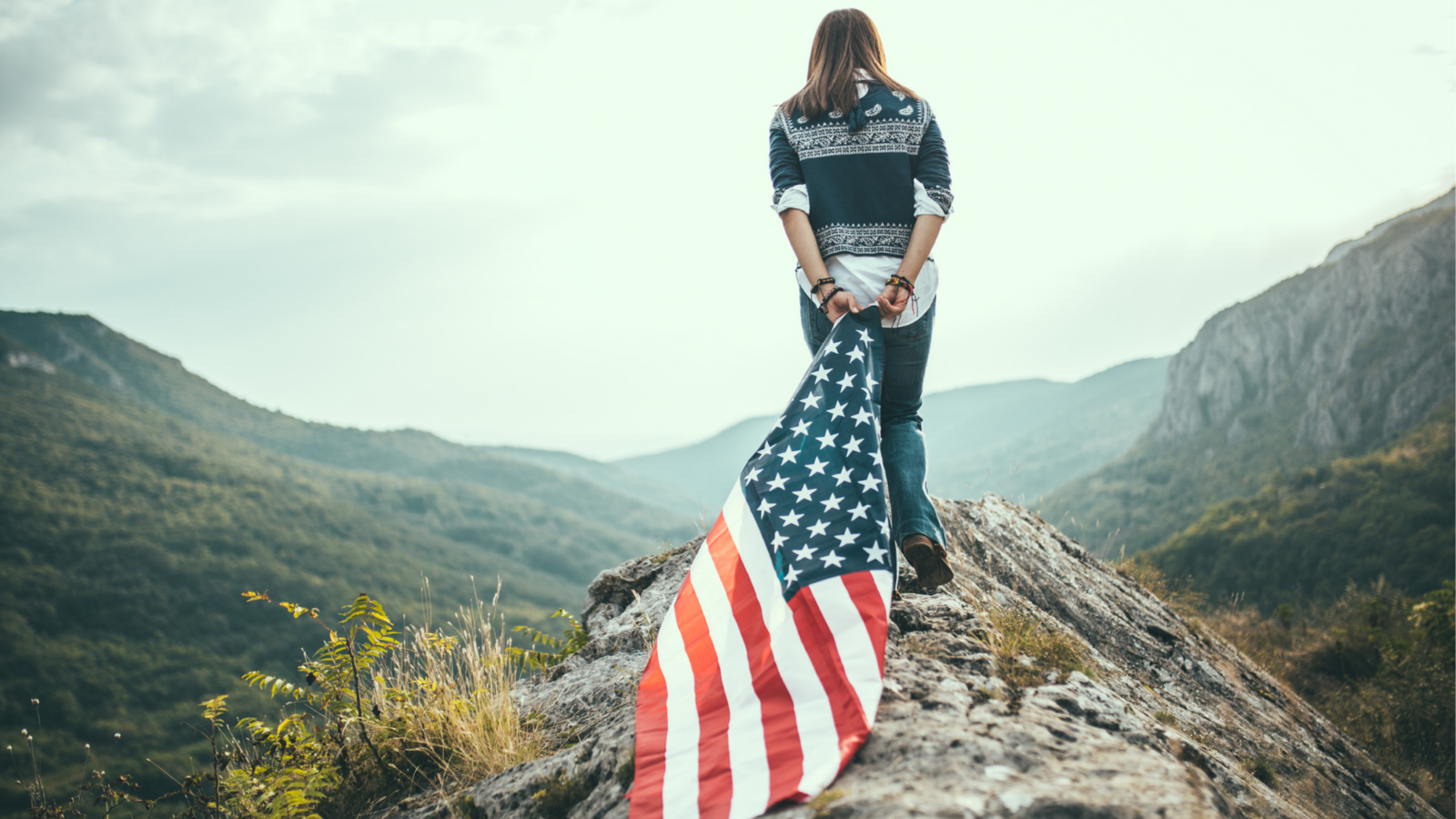As an adopted American, I believe that our country’s best future is one that celebrates and supports immigrants, especially women—artists, entrepreneurs, innovators, and trailblazers. It can start with a simple step.
As a Russian-born child going to school in Ukraine—where my dad served in the military—I wore a uniform bearing a red star-shaped pin engraved with the face of Lenin. One day, a boy from a neighboring school picked up pebbles from the street and threw them at me. “Get out of here, stupid Moskal!” he taunted, using a common local slur. “Go back to your Russia, and never come back!” I kept moving in silence, away from his hostility, uncertain of how to reply.
Fast forward 30 years. I am in a different schoolyard some 6,300 miles away, in my adopted home of Los Angeles. Watching my child play, I overhear a woman—whom I don’t know well—gossip behind my back. “That typical Russian face,” she said with disdain. “That’s a woman we like to hate.”
My name is Alya—short for Alevtina, which Americans find hard to pronounce. (I just go with the short version.) Alevtina comes from the Greek word aleuo, which means to reflect, or to fight. My mom once told me that there was an Orthodox Saint Alevtina who was known for her purity and strength. She encouraged me to carry my name with pride, and so I did, even when people openly laughed at me or, worse, masked their true feelings behind a smile.
I am a first-generation immigrant who came to the United States nearly a decade ago. Never in my wildest dreams could that little Russian girl have imagined becoming a television news correspondent, leaving her homeland as press freedoms began to tighten, and relocating to the other side of the world. An adventurous spirit brought me to Southern California to start a new family and a new career with the music that I loved and studied as a child. I found my voice in a new community and culture, but it was not an easy road.
Mine is just one story. In a time of climate crisis, conflict, and a global pandemic, the path of immigration is increasingly a reality for hundreds of millions of women around the world. There are more than 23 million immigrant women like me in the U.S., and from year to year, the migration of women to this nation outnumbers that of men.
Despite often overwhelming challenges, these women work to build a better life for themselves, their families, and the country they adopt as home. Most importantly, they give back far more than they take, and these contributions are reshaping American life for the better.
Examples abound of immigrant women who changed our lives. Austrian-born actress Hedy Lamarr helped develop the technology that would lead to the invention of WiFi. Swiss-American psychiatrist Elisabeth Kubler-Ross expanded understanding of the psychology of grieving, while German-born Dr. Ruth Westheimer opened the door to frank discussions and explorations of sexuality. And had Elizabeth Stern never moved from Canada to the United States, countless women would not have had access to her lifesaving innovations for screening cervical cancer.
The world’s cultural luster would be profoundly diminished if Josephine Baker hadn’t dared to venture from America to France, or if authors and artists ranging from Chimamanda Ngozi Adichie (born in Nigeria) and Bharati Mukherjee (India) to Joni Mitchell (Canada) and Camila Cabello (Cuba) hadn’t set out from the lands of their birth to find new places to call home.
For every household name, countless others are working quietly to lift their communities and create a better future for all. Just in economic terms, recent studies show that immigrants add trillions to the U.S. economy and paid taxes of more than $450 billion in 2018 alone.
Even in a country as historically welcoming as the United States, immigrant women continue to face obstacles. We see this anew in the case of violence and hate crimes against women of different backgrounds. We see it in a media where stereotypes still prevail over touching personal stories: People are hated for not who they are but for what others want them to be, because storytellers believe viewers need villains. That is how hardworking talents and courageous givers become portrayed as takers and invaders.
As an adopted American, however, I believe that our country’s best future is one that celebrates and supports immigrants, especially women—artists, entrepreneurs, innovators, and trailblazers.
It can start with a simple step. Be compassionate to the neighbor who does not look or speak like you and offer help. Listen and learn from their struggles. Appreciate their journeys. This will magnify the impact. Behind a “typically Russian” or any other face, there is a human story that can inspire, provide strength, and bring a new sense of purpose and belonging.
I recognize that I am more fortunate than most, in that I have the means to share my experiences and those of other women immigrants. That’s why I am launching a new philanthropic initiative, FirstGen, to tell their stories through a moving online series called Our Beautiful Journey and partnering with nonprofit organizations who serve them.
In our hearts, we are all immigrants to the human experience. By breaking down barriers of hate, elevating immigrant women’s stories, and spotlighting their contributions, we will write a new chapter that enriches our society today and for the next generation of leaders, doers, and neighbors.
It is time to stop throwing stones and start planting flowers.


